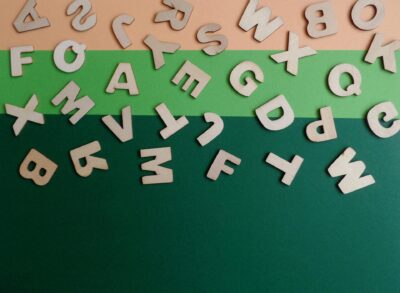
I don’t know what the weather is like where you are, but here in San Diego, we’ve got a beautiful, blue sky. Or a blue, beautiful sky? No, it’s definitely the first one. In fact, if you’re a native English speaker, it probably never even occurred to you to say it’s a blue, beautiful sky. Why? Well, it just sounds wrong.
In fact, in English, there is a specific rule governing the order of adjectives which explains why that phrase sounds wrong. As a writer pointed out in a 2016 tweet, all descriptions must come in the order of “opinion-size-age-shape-colour-origin-material-purpose Noun,” Mental Floss reports. So, for instance, I could say that I have a great little round red thrifted ceramic dinner plate. But I couldn’t say I had a thrifted round little great dinner ceramic red plate. And in the case of our beautiful, blue sky, since “beautiful” is an opinion on the relative merit of the sky’s appearance, it needs to come before the color descriptor of “blue.”
This rule, the rule of adjective order, is something that native English speakers learn as kids. Listening to how other people describe objects, we internalize these grammatical quirks without having to be taught them. But in fact, the order of adjectives can be a headache for English as a second language speakers, who have to memorize the different kids and order and adjectives.
This rule isn’t the only strange English grammar policy of its kind. Here are five more English grammar rules that native speakers know, but don’t realize they know.
Grammar Rules Native English Speakers Don’t Know They Know
- Ablaut replication.
This weirdly-named rule goes hand in hand with adjective order, per the BBC. It describes how words in certain phrases, like “zig-zag” and “tick-tock,” must be ordered. According to ablaut replication, in word pairs like this, the word containing the letter I must always go first. It would be nonsensical, for instance, to say “tock-tick.”
- How to pronounce English letters.
As native English speakers, we probably don’t even realize how weird our language is. But in fact, it’s consistently ranked as one of the hardest for foreigners to learn – in part because of our super weird spelling rules. Taking bits of words from many different languages, we have a host of spelling contradictions embedded in our tongue, including that PH makes the same sound as F, or why some apparently-rhyming words actually sound nothing alike.
- Animacy hierarchy.
The animacy hierarchy describes how we construct sentences about possessive objects. English speakers can use either the phrase “my mother’s sister” or “the sister of my mother” to describe their maternal aunt. However, while we could say “my mother’s necklace,” saying “the necklace of my mother,” sounds very strange. This is due to the animacy hierarchy, which says speakers should only use the sentence form “the X of my mother” when the object in question is animated, according to Mental Floss. For instance, since your mother’s sister is very much an animated object, this sentence makes sense. However, a necklace is not, so this phrase doesn’t sound as good. When in doubt, it’s best to use the simpler apostrophe-S possessive.
- Common metaphors.
Idioms, or metaphors, are often taken advantage by English speakers as well. Whether you want to have a chat about someone “kicking the bucket” or how it’s time to “call it a day,” you’re making life difficult for foreign speakers.
- Where to insert expletives in a phrase.
Yes, even explicit language is governed by grammar. When you want to use an expletive with a phrase, you have to attach it to the most-stressed syllable. For instance, in “la-dee-da,” it’s the last symbol, da, which is stressed, Mental Floss shares. So you should say “la-dee-freaking-da,” rather than alternate phrases like “la-freaking-dee-da.”
Our Other Grammar Resources
Want to learn more about the strange world of English grammar? Check out some of our other grammar-related blog posts, including our post about How to Use There, Their and They’re, and our piece about Accept vs. Except.

